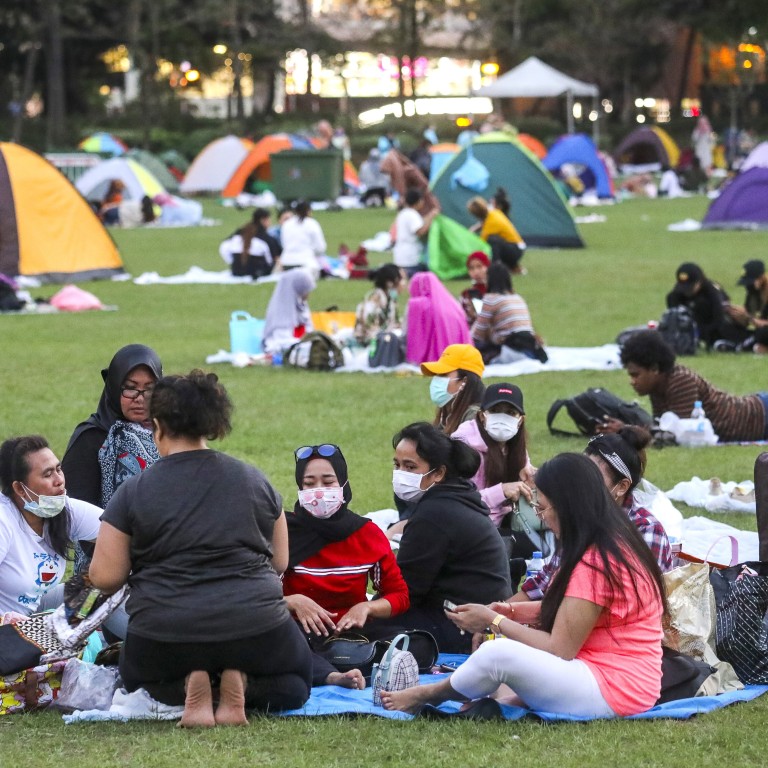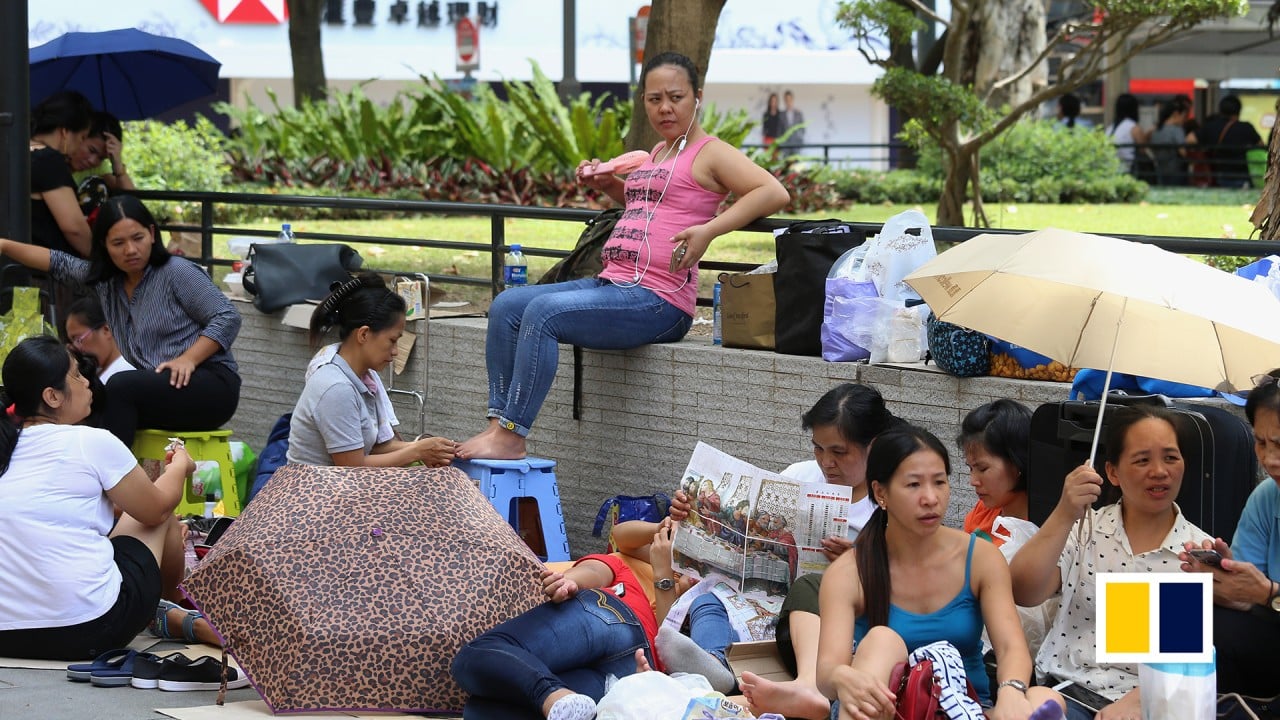
US and Hong Kong in human-trafficking row after city is placed on watch list over alleged failure to make progress combating the crime
- State department downgrades Hong Kong and says it needs to pass legislation targeting the crime and step up investigative efforts
- City’s government hits back, calling report ‘seriously biased’ and not ‘substantiated by facts’
According to its annual report, the US state department said while the city continued to make significant headway in meeting the minimum standards it had previously failed to achieve, improvement in 2019 had slowed compared with the year before.
But hours after the report was released on Friday, the city’s government objected strongly to its contents, calling the findings “groundless”, “seriously biased” and “not substantiated by facts”.
“Hong Kong has all along been making proactive, all-out and multipronged efforts to combat trafficking in persons,” a government spokesman said.
Hong Kong had been elevated to a tier-2 grade, but has been downgraded to the tier-2-grade watch list, the second-lowest rank in the four-tier ranking system. The rankings are based on the extent of government efforts to meet the minimum standards for the elimination of human trafficking.

02:58
Calls grow for higher wages and better treatment for Hong Kong’s foreign domestic workers
South Korea and Taiwan are among the countries in tier 1 deemed to have fully met the minimum standards. Tier 2 nations have not met the requirements but are deemed to be making significant progress, while those on the watch list, such as Hong Kong, are said to be failing in a number of areas.
In the final tier are countries, among them Iran and North Korea, whose governments do not fully meet the minimum standards and are not making significant efforts to do so.
Trafficking in Persons Report 2020 urged the government to pass a comprehensive law to target the crime, as well as putting in place stronger protection across the board – from law enforcement to the judiciary – for the city’s vulnerable, including its some 400,000 foreign domestic workers.
Hong Kong, the report said, had identified only three victims in the whole of 2019, a drop from 18 the previous year. It alleged that local authorities had not investigated any labour-related cases, and had looked into significantly fewer sex-trafficking cases.
“Observers reported ineffective implementation of the screening mechanism, and a lack of understanding of psychological trauma associated with trafficking continued to result in few victims identified,” the report said.
Pakistani victim of forced labour in Hong Kong loses Court of Final Appeal bid
While it acknowledged that the government had spent HK$62.2 million (US$8 million) on hiring 98 new employees, including two dedicated prosecutors in the justice department, and 26 police officers to investigate trafficking and exploitation of foreign domestic helpers, law enforcement was still missing cases “with clear indicators of trafficking”.
The authorities had also failed to adopt a trauma-informed approach, by conducting lengthy interviews and not assigning appropriate staff to interview female sex-trafficking victims. Officials sometimes penalised victims for crimes they committed because of coercion by traffickers, the report said, citing NGOs and past cases.
Alongside calls to step up prosecution and investigation work, one of the report’s suggestions targeted the outcome of a Court of Final Appeal finding earlier this year.
The long-standing failure to enact comprehensive legislation to combat human trafficking continues to be a gap in the protection of human rights in Hong Kong
The city’s top court ruled the government had no duty to enact specific legislation against human trafficking for the purposes of exploitation, servitude or forced labour, in a judicial challenge lodged by a Pakistani victim.
In January, the court found that the city could rely on available “patchwork” offences in existing criminal or labour laws, but the report said a comprehensive law that adhered to United Nations protocol to combat human trafficking was highly recommended.
The report also urged the city to ban agency fees for its foreign domestic workers, as well as allowing them to live separately from their employers, and scrapping the so-called “two weeks rule”, which required they leave Hong Kong within that specific period after the termination of their employment.
It accused the government of often failing to hold agencies accountable for charging fees higher than the local law allowed. And victims’ grievances were exacerbated by the poor translation services, and a lack of trained lawyers and experienced judges on forced-labour cases, an area which also necessitates improvement, according to the report.
Bride trafficking, a problem on China’s belt and road
In response, the Hong Kong government said “much of the analysis appears to be based merely on hearsay”.
The government said it had screened 7,500 cases with proactive and intensified efforts, and the fact only three victims were found “reinforces our observation all along that trafficking in persons has never been a prevalent problem in Hong Kong”.
Melanie McLaren, interim co-executive director at Justice Centre Hong Kong, said the report showed the city remained a source, destination and transit site for human trafficking.
“The long-standing failure to enact comprehensive legislation to combat human trafficking continues to be a gap in the protection of human rights in Hong Kong,” she said.
Lawyer Patricia Ho, who founded Hong Kong Dignity Institute, a professional group that helps the city’s marginalised population, said they were disappointed by the downgrade.
Ho said the group applauded the government’s efforts to train and hire staff to combat human trafficking and was looking forward to working with the authorities. Ho was named a Trafficking in Persons Report hero this year.
But she pointed to the government’s denial that the problem of human trafficking exists in Hong Kong.
“It is unfortunate that they see the need to deny the prevalence of the problem, an attitude which seriously impedes on the work that they are seeking to build,” she said.

